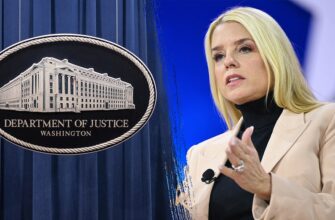The U.S. Department of Agriculture (USDA) is intensifying efforts to ensure that individuals residing in the country without legal authorization are not accessing Supplemental Nutrition Assistance Program (SNAP) benefits.
This action stems from an executive order issued by President Trump earlier this year, which aims to strengthen verification procedures for federal assistance programs. The USDA’s directive calls upon states to implement more robust methods for confirming immigration status when evaluating SNAP applications.
Current regulations already prohibit undocumented individuals from receiving SNAP benefits, reserving them solely for U.S. citizens and certain legally recognized noncitizens. As Agriculture Secretary Brooke Rollins stated in a recent interview, “We’ve already made arrests in Minnesota, New York, and Colorado, and we’re just getting started.” She added, “We’re going to be extremely, extremely aggressive. Now, hopefully it acts as a deterrent also.”
To facilitate these enhanced verification procedures, the USDA is requesting states to:
- Cross-reference Social Security numbers with mortality records (death master file).
- Utilize the Systematic Alien Verification for Entitlements (SAVE) system – a complimentary tool provided by the Department of Homeland Security – when processing applications from noncitizens.
“This is the president’s vision to ensure we’re being the most efficient and effective with taxpayer dollars,” Rollins explained, estimating potential savings of “billions” through reduced fraud.
In a letter disseminated to state SNAP agencies this week, Acting Deputy Under Secretary John Walk clarified the existing legal framework. He wrote: “By law, only United States citizens and certain lawfully present aliens may receive SNAP benefits. The Personal Responsibility and Work Opportunity Reconciliation Act of 1996 established that ‘aliens within the Nation’s borders not depend on public resources to meet their needs.’ SNAP is not and has never been available to illegal aliens.”
This heightened scrutiny arrives amidst broader debates surrounding eligibility for benefits by undocumented immigrants. For instance, California’s Medicaid program, which permits enrollment regardless of immigration status (and is funded with state and federal taxpayer dollars), has become a point of contention. Republicans in the state attribute the program’s financial difficulties to this policy, while Governor Gavin Newsom characterizes it as one component within a larger national healthcare affordability challenge.
Rollins emphasized that “the federal government is now paying attention a lot more closely than ever before on how the states are spending the money.” She further suggested a disparity in approaches between states, noting, “I think the red states, honestly, are probably a little more intentional and careful about this. Of course, it’s the blue states that tend to want to put everyone on the taxpayers’ back.”
Beyond immigration concerns, SNAP is also facing calls for broader reform focused on nutritional choices. Arkansas Governor Sarah Huckabee Sanders recently petitioned the USDA to restrict the purchase of items like candy and soda with SNAP funds while simultaneously expanding eligibility to include rotisserie chickens.
“President Trump and his administration have put a laser focus on solving America’s chronic disease epidemic, and reforming our food stamp program is a great place to start,” Sanders asserted. “Banning soda and candy from food stamps will remove some of the least healthy, most processed foods from the program and encourage low-income Arkansans to eat better.”









